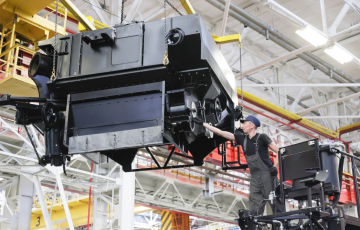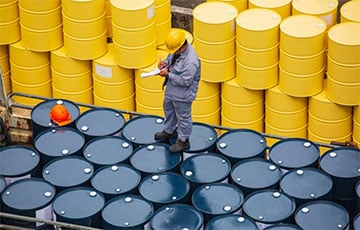Russian Agricultural Machinery Factories Are Going Idle
3- 1.07.2025, 13:18
- 4,074

The market is down a lot.
Russian agricultural machinery companies, following a sharp drop in sales, have started to switch to a shorter working week, announce unscheduled corporate vacations and go on downtime, plant representatives told Kommersant. In particular, the Chelyabinsk plant Tractor announced a transition to a part-time working week, while Rostelmash reported a reduction in its production program and the postponement of annual leave from September to June. "The market has gone down a lot. We will make a decision on the working mode at the end of July based on the situation," said Sergey Serebryakov, general director of the Kirov Plant Group (which includes the St. Petersburg Tractor Plant).
At the same time, the demand situation continues to deteriorate due to overstocking in the market of agricultural machinery - both Russian and imported, Kommersant's interlocutors say. As of mid-March alone, the ten largest agricultural machine-building enterprises had in their warehouses equipment worth 62 billion rubles. At the same time, as calculated in the association "Rosspetsmash", sales of Russian agricultural machinery in the domestic market in January-May decreased by 32.8% year-on-year, to 62.7 billion rubles. Imported machinery is sold even worse: the average decline in January-May - about 40%, said the chairman of the board of the association of dealers of agricultural machinery ASKOD Alexander Altynov.
There are risks that some enterprises of agricultural machinery will not be able to overcome the crisis and close, says Dmitry Babansky from SBS Consulting. Altynov does not rule out such a scenario, but he does not expect mass closures. "For the last five to seven years, everyone has been living very well. And a couple of years - if they are careful with the resources that they managed to consolidate, - it is quite possible to live," - explained the head of the ACCOD.
His forecast, the market of Russian and imported agricultural machinery at the end of 2025 will decline by about 25%. In "Rosspetsmash" noted that the program of preferential leasing from the Ministry of Industry and Trade and "Dom.RF" helps to stabilize the situation so far. A representative of UMG, a manufacturer of road construction and special equipment, admitted that the market may return to growth within two years, but it will not be possible to achieve this without preferential programs for the purchase of equipment.











